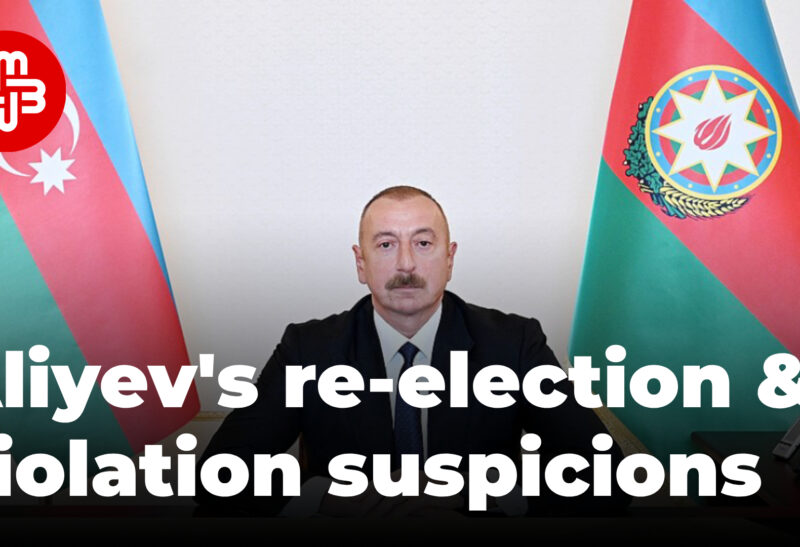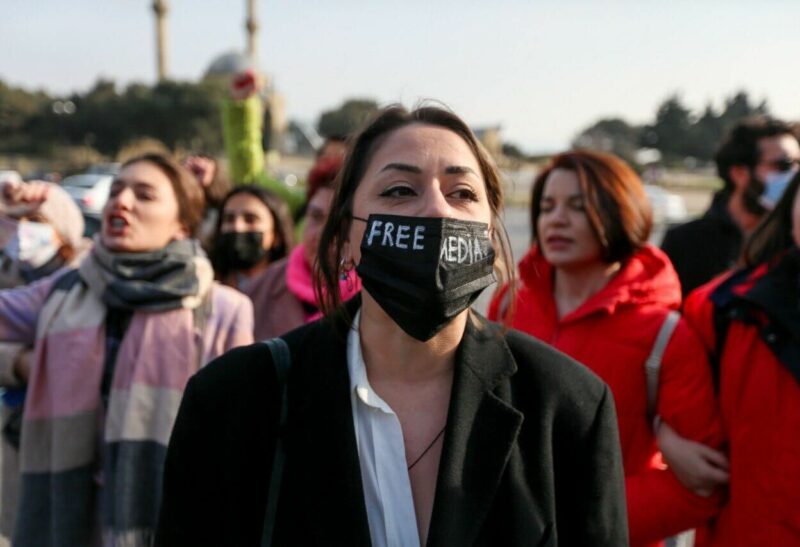
Yesterday’s snap presidential election in Azerbaijan “took place within a restrictive political environment and under a legal framework that curtails fundamental rights and freedoms,” according to the
preliminary conclusions
of the Office for Democratic Institutions and Human Rights (ODIHR).
In a statement released today, the ODIHR’s International Election Observation Mission (IEOM) strongly criticized the election campaign, in which incumbent president Ilham Aliyev was treated with deference by a tightly controlled media and even by his opponents.
“The media environment is characterized by a highly restrictive legislative framework that challenges the freedoms of expression and the press and which extends to websites and social media content,” the ODIHR’s statement reads. “All TV stations monitored by the ODIHR EOM devoted the largest part of their news coverage to the authorities and their activities. As there are no broadcast or print media that critically analyze government policies, dissenting opinions regarding authorities’ performance were absent from newscasts. Most of the political coverage was given to the incumbent in his official capacity, while all other candidates combined received only a fraction of the time.”
The statement’s criticisms are not restricted to the campaign, however. The IEOM reports widespread irregularities on voting day as well. Before opening, many polling stations failed to count the number of received ballots or to demonstrate that ballot boxes were empty and securely sealed. As the voting began, observers reported ballot box stuffing, group voting, suspicious voter lists, and other serious violations. Not all voters were able to fill out their ballots in secret and many polling stations had web cameras “placed in a way that could undermine the secrecy of the vote.”
The IEOM observed 133 vote counts and assessed over half of them negatively. “Importantly, almost one half of PECs observed did not count the signatures on the voter lists, which made it impossible to reconcile the number of ballots found in the box with the number of people who signed the list,” the statement reads. “IEOM observers reported 19 cases of indications of ballot box stuffing, as well as 17 instances of evidence of deliberate falsification of voter list entries, results, or protocols.”
In a
press release
, the Special Co-ordinator of the short-term observation mission, Nilza de Sena, offered Azerbaijani authorities assistance in “a joint effort to tackle the fundamental problems that a restrictive political and legal environment, which does not allow for genuine competition, poses for free elections.”
“I encourage the authorities to take good note of the recommendations ODIHR will make in their final report, de Sena continued. “We will be ready to assist in this process, if requested by Azerbaijan, and to continue our dialogue on the future development of the country`s democracy.”



